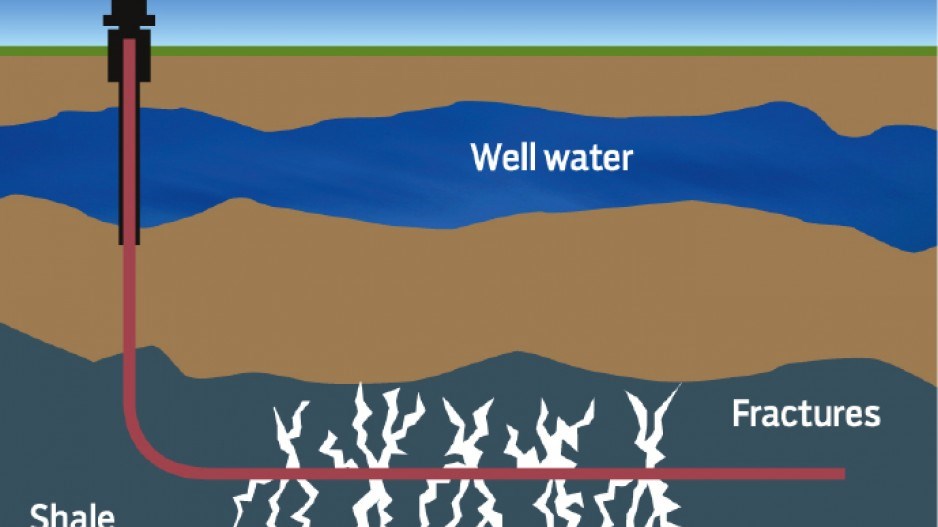As the B.C. government pushes to expand the liquefied natural gas (LNG) industry, a University of Victoria (UVic) report warns regulations over fracking-related wastewater deposited into decades-old disposal wells across the province are severely lacking.
The study, which was supervised by UVic Environmental Law Centre legal director Calvin Sandborn, noted most of B.C.’s regulation of wastewater occurs at the permitting stage with “minimal regulatory requirements” to follow.
“There are a lot of unknowns about fracking and we need to design careful regulations to deal with those unknowns,” Sandborn told Business In Vancouver.
“British Columbia is far from being up to snuff.”
The study was conducted on behalf of the Fort Nelson First Nations (FNFN) after they expressed concerns the proposed expansion of the B.C. liquefied natural gas industry could increase fracking operations in their territory by 600%.
Since fracking operations use a tremendous of water that is contaminated and then deposited in disposal wells, the aboriginal band was worried about the effects increased activity would have on groundwater.
The study found a single well in northern B.C. accounted for 39% of all the wastewater injected into disposal wells throughout the province. The well has seen 41 billion litres of water — or nearly 17,000 Olympic swimming pools — injected into it since being constructed 46 years ago.
Sandborn said the concern is that these disposal wells are not being monitored adequately throughout the course of their lifetimes, which leads to greater risk that the wastewater could contaminate the environment.
The study recommends minimizing the amount of water used and wastewater produced, carrying out strategic environmental assessments, mandating wells are constructed along best-practice standards, and boosting regulations and emergency response plans.
“We’re not saying necessarily, ‘Don’t do fracking,’” Sandborn said.
“But if you’re going to do it, let’s do it right. Let’s be smart about it and not accidentally contaminate water.’”
Calls to the FNFN were not returned by deadline.




